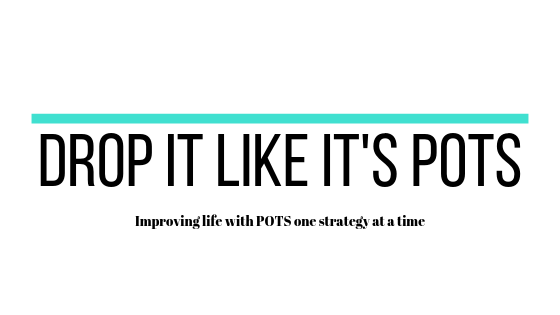It seems that Ivabradine is the “hot” drug for POTS right now, so I would be remiss to not mention it. I do not have any personal experience using Ivabradine, a.k.a Corlanor, for POTS, so I included an interview and a link to other POTSie’s experiences.

What is Ivabradine (Corlanor)?
Corlanor is an I(f) current inhibitor. It slows down the heart rate by making the body’s natural pacemaker, the SA node, fire at a slower rate. Corlanor is able to do this without affecting other cardiovascular functions. It is typically used in patients with heart failure to keep their hearts from working too hard in that fragile state.
What we know about Ivabradine use for POTS
Ivabradine is used off-label for POTS because POTS patients have an excessive increase in heart rate and Ivabradine decreases the heart rate. Studies and case reports show that Ivabradine can improve: tachycardia, palpitations, syncope, and fatigue.
In this study, mentioned at Dysautonomia International Conference, 38/49 of subjects experienced improvement of symptoms on Ivabradine. This review of studies demonstrates that Ivabradine improves symptoms for a significant percentage POTS patients. For example, one study demonstrated that 44% of subjects reported and improvement in fatigue. That is huge since most POTS patients experience profound fatigue.
Dr. Peter Rowe briefly discussed Ivabradine during the Dysautonomia International conference. The medication worked as a bridge to allow a 22-year-old patient of his to exercise. With the medication and exercise, she is doing significantly better and can even enjoy long (10 mile) hikes. If she stops the medication, her symptoms worsen again. So, the medication is not strictly a bridge for her, but also a long-term solution. A conference attendee asked Dr. Rowe about the long-term effects of Ivabradine and he said he feels it is safe.
Currently, there is a study in the early stages that will compare propranolol to Ivabradine in the treatment of POTS. Historically, propranolol has been the first-line choice for many physicians, so it will be interesting to see if this study confirms that choice or if Ivabradine is a stronger option.
Side Effects
Potential side effects include:
- bradycardia (slow heart rate)
- hypertension (high blood pressure)
- atrial fibrillation
- temporary brightness in the field of vision (this side effect seems to go away over time)
- blurred vision
- chest pain
- headache
- dizziness
- fatigue
- nervousness
The most common side effect is the temporary brightness in the field of vision. It seems that this is not very bothersome to most patients. I am not sure how common the other side effects are, so don’t panic if you see “fatigue” and are like “great, I already have enough of that”.
Experiences with Ivabradine from POTS patients
I spoke to the lovely Sheila, a POTS patient, about her experience with POTS and Ivabradine. She developed POTS after getting Empty Nose Syndrome from nerve damage due to a botched sinus surgery. After failed trials with beta blockers, her cardiologist prescribed Ivabradine. She has taken it for roughly one year. Her dosage started off at 5 mg, but now she takes 7.5 mg daily. Within the first few days on Ivabradine, Sheila noticed a “boost in a positive direction”. Ivabradine has been a useful bridge for her to be able to exercise. Without Ivabradine, exercise was impossible for Sheila. As many of us have experienced, exercise is key, so finding a medication that works as a bridge to be able to exercise is invaluable.
Sheila experienced some mild and fleeting side effects such as nausea, jitters, and a heart flutter. However, the most notable side effect she experienced was a severe headache. She said it came on “swiftly and mightily” within 24 hours of initiating Ivabradine. About a month into taking the drug, the headache resolved. Although this was a most unpleasant experience, Sheila says it was well worth the payoff.
Heidi from the blog Chronically Salty also wrote a detailed account of her experience with Ivabradine that you can check out here.
Have you tried Ivabradine? What is your experience with it?
Disclaimer: I am not a medical professional. Statements on this site are not meant to be taken as medical advice. These statements reflect my personal experiences having mild-ish post-viral POTS and ME. Due to the wide spectrum of these diseases, comorbidities, and everyone being different, your experiences may be very different than mine.
Note: If you post a comment, this site does NOT have a feature to notify you of responses to your comment. I have not found a good solution for that yet. However, I usually respond to every comment in a timely manner, so be sure to check back.

3 Comments
It works for some, no difference for me
Thanks for sharing your experience with it 🙂
Wow! That sounds like a very promising drug. Can’t wait to see what the study finds on comparing it to propanol as a first line drug. So glad they keep finding more treatments to help.